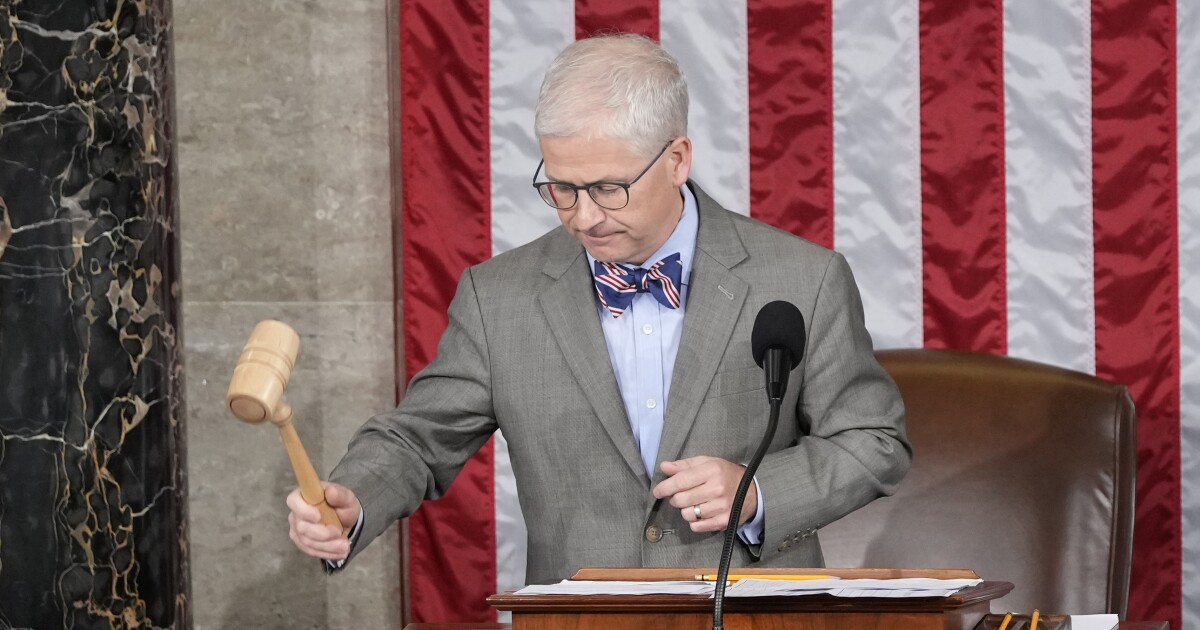

The House of Representatives has been without a speaker for nearly three weeks, but an extended vacancy in the speaker‘s chair is not unprecedented.
While the House speakership has been vacant for 19 days since Rep. Kevin McCarthy was ousted from the position on Oct. 3, the lower chamber of Congress has experienced long periods without an elected presiding officer. Here is a look at the four longest speaker vacancies in the history of the House of Representatives.
THREE REASONS DRIVERS AREN’T RUSHING TO TRADE IN THEIR GAS GUZZLERS FOR EVS
December 1855-February 1856
The longest speakership vacancy the House has ever faced was in the 1850s when the speaker election at the beginning of the 34th Congress went to 133 ballots.
Less than six years before the start of the Civil War, slavery and anti-immigration movements influenced the longest speaker race in history, according to the Office of the Historian of the House of Representatives. The first vote was held on Dec. 3, 1855, and the final vote was held on Feb. 2, 1856.
Massachusetts Rep. Nathaniel Banks of the American Party was elected 103-100 over Rep. William Aiken (D-SC) on the final ballot after Banks had only received 21 votes on the first ballot. The 61-day vacancy is the longest the House of Representatives has not had an elected speaker over the chamber.
December 1859-February 1860
Four years after the longest vacancy, the speaker election at the beginning of the 36th Congress came close to breaking the 61-day record for a vacancy in the House speakership.
With the Civil War more than a year away, divisions between slave states and free states were near all-time highs. With the tension, the House of Representatives had to go 44 rounds before a speaker was elected when Rep. William Pennington (R-NJ) won a majority of the chamber on the final ballot.
The 58-day vacancy remains one of the longest in the history of the chamber, and far ahead of the third longest vacancy.
December 1849
The third longest vacancy the House speakership has ever seen was in December 1849, when the House of Representatives went 63 ballots before electing a speaker.
The 19 day vacancy in the speaker’s chair was ended after the House of Representatives decided to elect a speaker by a plurality vote. Rep. Howell Cobb (D-GA) was elected speaker after the chamber passed a resolution allowing for a speaker to be elected by plurality. This method would only be used one other time, during the speaker election in 1855-66.
October 2023 (ongoing)
Currently tied for the third longest vacancy the House speakership has seen is currently unfolding, though it will overtake the third place spot on Monday. The House speakership was made vacant when eight Republicans and all Democrats voted 216-210 to remove McCarthy on Oct. 3, 2023.
CLICK HERE TO READ MORE FROM THE WASHINGTON EXAMINER
Since the motion to vacate, which was the first successful one in history, Republicans have scrambled to find a replacement for the California Republican. Initially, the GOP House conference nominated House Majority Leader Steve Scalise (R-LA), but when it became evident he would not reach 217 votes, he bowed out. House Republicans then nominated Rep. Jim Jordan (R-OH) and went through three rounds of voting but dumped him as the nominee as he struggled to win over moderate members of the conference.
Republicans will hold a speaker forum on Monday, with a timetable for the fourth speaker ballot to be determined after the conference has selected its third speaker nominee. The vacancy has been ongoing for 19 days.





